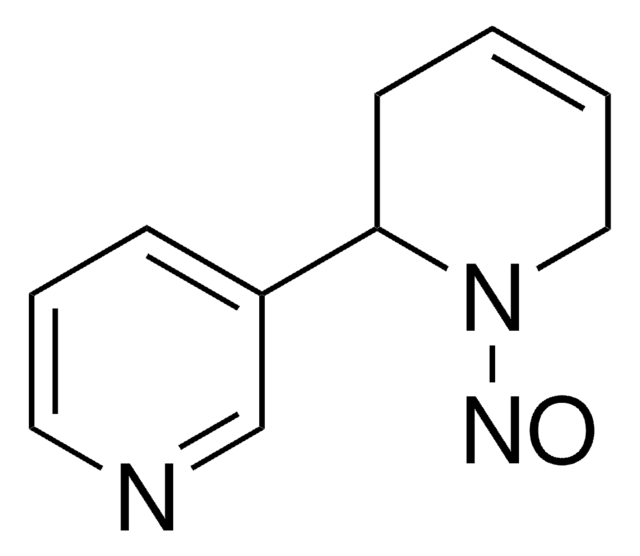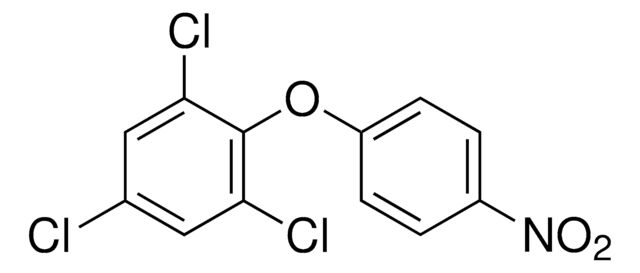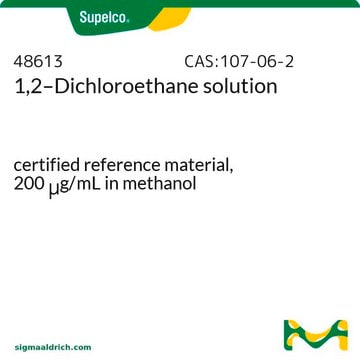40200-U
Dibromochloromethane solution
certified reference material, 5000 μg/mL in methanol
About This Item
Polecane produkty
klasa czystości
certified reference material
TraceCERT®
agency
EPA 601
linia produktu
TraceCERT®
Certyfikat analizy
current certificate can be downloaded
Właściwości
standard type calibration
opakowanie
ampule of 1 mL
stężenie
5000 μg/mL in methanol
metody
HPLC: suitable
gas chromatography (GC): suitable
Zastosowanie
environmental
format
single component solution
temp. przechowywania
2-8°C
InChI
1S/CHBr2Cl/c2-1(3)4/h1H
Klucz InChI
GATVIKZLVQHOMN-UHFFFAOYSA-N
Szukasz podobnych produktów? Odwiedź Przewodnik dotyczący porównywania produktów
Zastosowanie
Inne uwagi
Informacje prawne
Hasło ostrzegawcze
Danger
Zwroty wskazujące rodzaj zagrożenia
Zwroty wskazujące środki ostrożności
Klasyfikacja zagrożeń
Acute Tox. 3 Dermal - Acute Tox. 3 Inhalation - Acute Tox. 3 Oral - Flam. Liq. 2 - STOT SE 1
Organy docelowe
Eyes
Kod klasy składowania
3 - Flammable liquids
Klasa zagrożenia wodnego (WGK)
WGK 2
Środki ochrony indywidualnej
Eyeshields, Faceshields, Gloves, type ABEK (EN14387) respirator filter
Choose from one of the most recent versions:
Masz już ten produkt?
Dokumenty związane z niedawno zakupionymi produktami zostały zamieszczone w Bibliotece dokumentów.
Nasz zespół naukowców ma doświadczenie we wszystkich obszarach badań, w tym w naukach przyrodniczych, materiałoznawstwie, syntezie chemicznej, chromatografii, analityce i wielu innych dziedzinach.
Skontaktuj się z zespołem ds. pomocy technicznej











